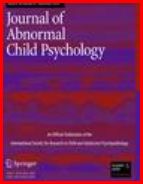Evidence for shared heritable influences across domains of substance use suggests that some genetic variants influence broad risk for externalizing behaviors.
Theories of externalizing psychopathology also suggest that genetic liability for substance use manifests as temperamental risk factors, particularly those related to behavioral disinhibition, during adolescence. The cholinergic muscarinic receptor 2 gene (CHRM2) is a promising candidate for studying genetic influences on broad-based risk for externalizing traits.
This study examined a candidate CHRM2 polymorphism (rs1455858) in relation to substance use and personality measures of disinhibition in a sample of high-risk adolescents (n = 124). Bivariate analyses and structural equation modeling (SEM) evaluated associations of rs1455858 with measures of drug involvement (alcohol, tobacco and marijuana) and disinhibition (indexed by impulsivity and sensation seeking scores).
Bivariate analyses showed significant associations of CHRM2 with several behavioral phenotypes. In SEM analyses CHRM2 related significantly to latent measures of substance use and disinhibition; additionally, disinhibition mediated the association of CHRM2 with substance use.
These results suggest that CHRM2 variants are potentially relevant for adolescent substance use and that temperamental risk factors could contribute to these associations.
Request Reprint E-Mail: chendershot@mrn.org
